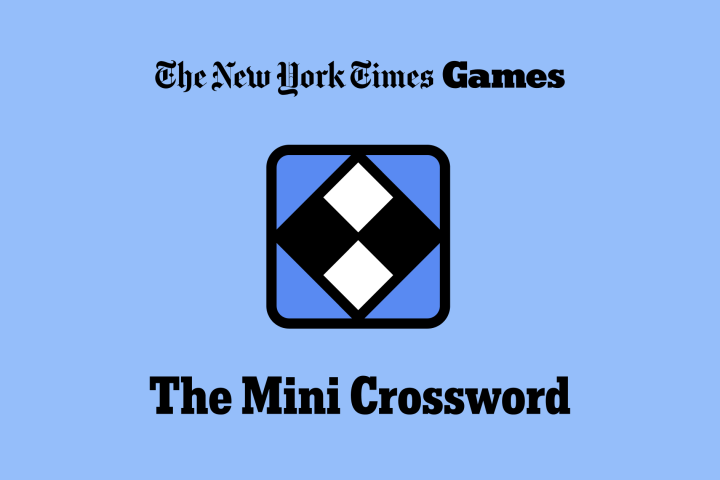by Connor Parks
I guess you could say I’m sort of a fanatic for the New York Times crossword. By the time you read this, my daily streak will have reached over 825 days, and I have no plans of stopping anytime soon. And what can I say? It’s a great way to entertain yourself and keep your brain active every day while expanding your vocabulary and trivia knowledge. Together with America’s favourite, the Mini, crossword time is a vital element of each day for me, and as a long-term Games subscriber, I can’t envision life without them. As much as I hate to admit it, $6 per month really is worth it for everything you get out of it. Unfortunately, however, I’ve heard from many recently that their own enjoyment of the NYT crossword has been stripped without warning, like a rug pulled from beneath one’s feet, with the sudden paywalling of the Mini. I can’t tell you how many times I’ve heard complaints about this issue in recent weeks, especially on Centre’s Mini-crazy campus, and it seems folks are worried that the worst may be yet to come. From much of the rhetoric I’ve heard around the subject, many seem worried that Wordle, still free, may be soon to follow: an absolutely devastating possibility for those who enjoy it each day. The challenge now seems to be addressing the why before tackling the how of solving the problem, if at all possible. I may not be able to fully address the latter, but I can definitely speculate on the former.
The issue here, in my eyes, seems to be twofold. At its core, the problem is rooted in the increased greed of mass media conglomerates who are willing to capitalise on long-time free favourites in hopes that enough fans will be disappointed enough to fork over $6 monthly to keep playing. In an age of normalised “subscriber exclusives” and privatised information, I guess it’s only natural that the leisure side of mass media would be the next to be locked up behind restrictive paywalls much like actual journalism content. Indeed, it seems entirely plausible that this trend may not end with the Mini, with the Times stating in a recent press release that they plan to “continue to experiment with what works best for our subscribers and explore how Games can contribute even more meaningfully to The Times’s essential subscription strategy.” regarding Connections, Sudoku, and more favourites. According to a recent article from The Hill, the gradual monetisation of games ties back to the company losing a large percentage of their print subscribers in recent years, yet I just can’t take this as an acceptable excuse. This isn’t to say that the New York Times is the only organisation engaging in these practices, though. Over the past few years, it seems nearly every mass public media source has shifted at least some of their content (normally most) to some kind of pay-to-access method. Even worse, this percentage seems disproportionately high (in my experience) in local newspapers, stripping countless Americans of their right to freely be aware of happenings and need-to-know information from their own communities.
Secondly, and perhaps more importantly to Mini fans at an institution like Centre, is the unwillingness of organisations that provide free news subscriptions to include access to Games and otherwise alongside journalism content. Call me an ingrate, and maybe I’m asking too much here, but one would think that a group willing to provide students access to news media en masse would also be willing to balance out our digital feeds, providing funds for both “work” and “play” with media such as the New York Times. From my own high school to the Boyle County public library, I’ve come across many groups eager and willing to provide students free access to memberships to paywalled online news such as the Times, the Wall Street Journal, the Washington Post, etc. The increasingly popular Games membership, however, never seems to have been taken into consideration as something worth endowing. The fact of the matter seems to be that educational institutions who fund these memberships have drawn what I believe to be an unfair line when it comes to the content we, as students, are owed daily access to. Even more, I can only imagine how the creators of all NYT daily puzzles feel about these recent corporate decisions. One has to believe they aren’t receiving many royalties from this new upcharge (given how capitalist media corporations tend to work and all), so aside from those at the top of the feeding chain, it seems nobody stands to benefit from the paywalls.
So what comes next? Do America’s Mini fans who refuse to pay the price have anywhere to turn in hopes of a future full of free puzzles? Aside from boycotts and mass outcry, I can’t see many possibilities which could potentially move the proverbial hand of the powers that be to return the Mini to free access. What has me tempted recently, though, is the new Times Family subscription: not for myself, but for giving to others. It allows users to add up to 3 extra people to their personal membership for only $2 extra per month, an expenditure I’d absolutely be willing to make on my own account if it meant that some die-hard Mini fans could regain access to their daily favourite. So who knows? Perhaps the next Cento edition will include a raffle for those interested in getting access to everything that a full Games membership has to offer, including the return of the mighty Mini. If this sounds like you, then you’ll know just where to look. Stay tuned!

